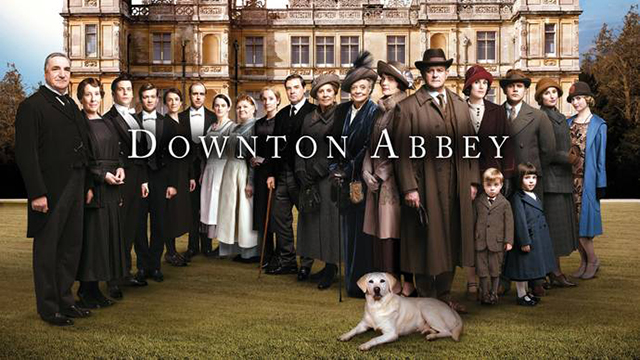
By Hannah Simon
Public school is a mixed bag. Some of the teachers are incredible. Others, not so much. When I graduated high school, I knew nothing about the history of the world, thanks to a certain teacher's predilection for personal anecdotes in lieu of actual history. When Downton Abbey came onto the American scene, I, along with my fellow historically-deprived millennial Americans, picked up a few things. Here are just some of the history lessons we were only mildly aware of before Downton Abbey:
1.) The Titanic

What we learned in high school:
This unit was conveyed through, yes, a showing of the James Cameron masterpiece. PG-13 waivers were signed by parents, homeschool transfers forbidden to watch were forced to do busy-work reports in the library, and the rest of us were subjected to a cliché-riddled epic love story involving unnatural red hair dye and blue jewelry stones that would haunt cereal boxes for years to come. I could be wrong, but the only historical accuracy of Titanic is that there was indeed a boat, and it did indeed sink. While I realize the film wasn't engineered to teach lazy, tenured history teachers’ high school students history, but rather to underwhelm the Hollywood community with grand effects and moderately impressive costumes, the movie wasn't that great.
The real deal:
The Titanic was one of the first disasters that affected people around the globe. Passengers from North and South America, Europe, Asia, Australia, and even Africa were all killed. 1517 deaths out of 2223 passengers make this sinking the largest peacetime maritime disaster in the world’s history, but that hasn't stopped moony Americans from romanticizing the shipwreck. Downton Abbey shows us British people died on the Titanic too, not just star-crossed lovers trying to live out their stock character lives. Two particular Brits were lost who had important ties to the Crawley estate of Downton. Mary's cousin-fiancé died so no estate for Mary. Houses are passed down from father to next male heir, not father to daughter (another thing we learned – yay, Downton Abbey!). This sets the stage for a distant cousin to come onto the scene. Good thing for Mary it wasn't Mr. Collins!





